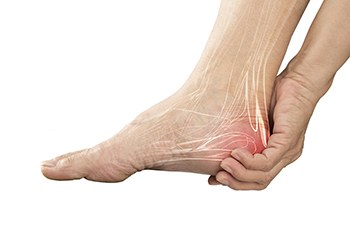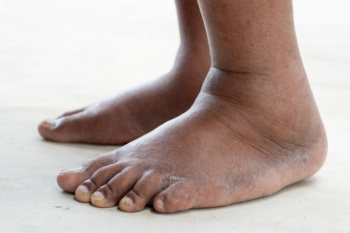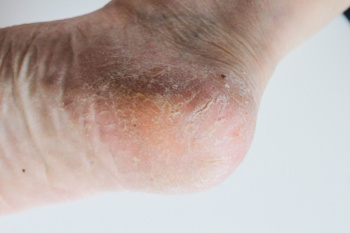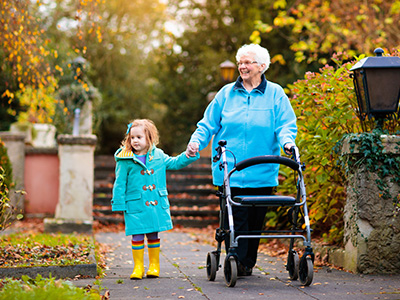Items filtered by date: April 2025
Is My Heel Bruised or Broken?

A bruised heel, also known as a heel contusion, occurs when the fat pad under your heel becomes damaged from repeated impact or a hard landing. Common causes include running on hard surfaces, jumping sports, or wearing shoes that lack proper support. It typically feels like a deep, dull ache or tenderness directly under the heel, especially when standing or walking. In contrast, a broken heel, or heel bone fracture, is much more severe, and often results from a traumatic injury like a fall from height or a car accident. Symptoms include intense pain, swelling, bruising, and difficulty bearing weight. Both conditions can make walking painful, but a broken heel usually requires more intensive treatment and a longer recovery period. A podiatrist can perform a physical exam and imaging tests to determine the cause of your heel pain and develop a personalized treatment plan that may include rest, orthotics, or targeted exercises. If you have heel pain, it is suggested that you schedule an appointment with a podiatrist.
Many people suffer from bouts of heel pain. For more information, contact one of our podiatrists of Lakewood Family Foot and Ankle. Our doctors can provide the care you need to keep you pain-free and on your feet.
Causes of Heel Pain
Heel pain is often associated with plantar fasciitis. The plantar fascia is a band of tissues that extends along the bottom of the foot. A rip or tear in this ligament can cause inflammation of the tissue.
Achilles tendonitis is another cause of heel pain. Inflammation of the Achilles tendon will cause pain from fractures and muscle tearing. Lack of flexibility is also another symptom.
Heel spurs are another cause of pain. When the tissues of the plantar fascia undergo a great deal of stress, it can lead to ligament separation from the heel bone, causing heel spurs.
Why Might Heel Pain Occur?
- Wearing ill-fitting shoes
- Wearing non-supportive shoes
- Weight change
- Excessive running
Treatments
Heel pain should be treated as soon as possible for immediate results. Keeping your feet in a stress-free environment will help. If you suffer from Achilles tendonitis or plantar fasciitis, applying ice will reduce the swelling. Stretching before an exercise like running will help the muscles. Using all these tips will help make heel pain a condition of the past.
If you have any questions, please feel free to contact our office located in Lakewood, CA . We offer the newest diagnostic and treatment technologies for all your foot care needs.
What Parents Should Know About Children’s Foot Problems

Children can experience several foot conditions as they grow, some of which are part of normal development while others may require medical attention. Hypermobile flat feet are often flexible and painless, typically improving with age. In-toeing, where the feet turn inward, and out-toeing, where they point outward, are common gait variations seen in young children and usually resolve without treatment. High arches, or pes cavus, may indicate a neurological issue if accompanied by pain or imbalance. Additionally, clubfoot is a more serious condition present at birth, where the foot appears twisted out of position and requires early intervention. Observing your child’s foot shape, walking pattern, and comfort level is important. If your child exhibits any of the above foot conditions, it is suggested that you contact a podiatrist who can monitor your child's foot health.
Making sure that your children maintain good foot health is very important as they grow. If you have any questions, contact one of our podiatrists of Lakewood Family Foot and Ankle. Our doctors can provide the care you need to keep you pain-free and on your feet.
Keeping Children's Feet Healthy
Having healthy feet during childhood can help prevent medical problems later in life, namely in the back and legs. As children grow, their feet require different types of care. Here are some things to consider...
Although babies do not walk yet, it is still very important to take care of their feet.
Avoid putting tight shoes or socks on his or her feet.
Allow the baby to stretch and kick his or her feet to feel comfortable.
As a toddler, kids are now on the move and begin to develop differently. At this age, toddlers are getting a feel for walking, so don’t be alarmed if your toddler is unsteady or ‘walks funny’.
As your child gets older, it is important to teach them how to take care of their feet.
Show them proper hygiene to prevent infections such as fungus.
Be watchful for any pain or injury.
Have all injuries checked by a doctor as soon as possible.
Comfortable, protective shoes should always be worn, especially at play.
If you have any questions, please feel free to contact our office located in Lakewood, CA . We offer the newest diagnostic and treatment technologies for all your foot care needs.
Keep Your Feet Healthy So You Can Stay Active
The Connection Between Medical Conditions and Swollen Feet

Swollen feet can be a sign of various underlying medical conditions that affect the body’s ability to manage fluid balance. During pregnancy, hormonal changes and increased pressure on blood vessels can cause fluid retention, leading to noticeable swelling in the feet and ankles. Heart conditions such as congestive heart failure may impair circulation, allowing fluid to accumulate in the lower extremities. When kidney function is reduced, the body may struggle to eliminate excess fluid and sodium, contributing to swelling. Liver disease can also lead to fluid buildup due to decreased production of proteins that regulate blood volume. Additionally, poor circulation, often from conditions like venous insufficiency, can prevent blood from flowing effectively back to the heart. If you have swollen feet, it is suggested that you visit a podiatrist who can offer you effective relief and management methods.
Swollen feet can be a sign of an underlying condition. If you have any concerns, contact one of our podiatrists of Lakewood Family Foot and Ankle. Our doctors can provide the care you need to keep you pain-free and on your feet.
Swollen feet are a common ailment among pregnant women and people who stand or sit for extended periods. Aging may increase the possibility of swollen feet and patients who are obese often notice when their feet are swelling too. There may be medical reasons why swollen feet occur:
- Phlebitis - A condition that causes the veins to become inflamed and can also cause leg pain.
- Liver disease - This may lead to low blood levels of albumin which is a protein. This can cause fluid in the blood to pass into the tissues and several areas of the body can become swollen.
- Heart failure - When the heart doesn’t pump properly the blood that is normally pumped back to the heart can pool in the veins of the legs causing swollen feet.
- Kidney disease - One of the main functions of the kidneys is releasing excess fluid in the body. This type of condition can make it difficult for the kidneys to function properly, and as a result the feet may become swollen.
- Deep-vein thrombosis (DVT)- This is a serious condition where blood clots form in the veins of the legs. They can block the return of blood from the legs to the heart which may cause the feet to swell. It is important to be treated by a podiatrist if this condition is present.
Swollen feet can also be caused by bone and tendon conditions, including fractures, arthritis, and tendinitis. Additionally, there may be skin and toenail conditions and an infection may cause the feet to swell. Patients who take medicine to treat high blood pressure may be prone to getting swollen feet.
Many patients elevate their feet to help relieve the swelling and this is generally a temporary remedy. When a podiatrist is consulted the reason behind the swelling can be uncovered and subsequently treated.
If you have any questions please contact our office located in Lakewood, CA . We offer the newest diagnostic and treatment technologies for all your foot and ankle needs.
Dry Skin and Cracked Heels

Dry skin on the feet and cracked heels can be uncomfortable and sometimes painful. Lack of moisture is a common cause, as the feet have fewer oil glands compared to other parts of the body. Standing for long periods, wearing open-backed shoes, and walking barefoot can increase the risk of dryness and thickened skin. Risk factors include aging, obesity, and prolonged exposure to harsh weather conditions. Certain medical conditions, such as diabetes, eczema, and thyroid disorders, can also contribute to excessive dryness and cracking. If left untreated, deep cracks may develop, increasing the risk of infection. If you have cracked heels, it is suggested that you consult a podiatrist who can treat this uncomfortable condition, which may include prescribed medication.
If the skin on your feet starts to crack, you may want to see a podiatrist to find treatment. If you have any concerns, contact one of our podiatrists from Lakewood Family Foot and Ankle. Our doctors can provide the care you need to keep you pain-free and on your feet.
Cracked Heels
It is important to moisturize your cracked heels in order to prevent pain, bleeding, and infection. The reason cracked heels form is because the skin on the foot is too dry to support the immense pressure placed on them. When the foot expands, the dry skin on the foot begins to split.
Ways to Help Heal Them
- Invest in a good foot cream
- Try Using Petroleum Jelly
- Ease up on Soaps
- Drink Plenty of Water
Ways to Prevent Cracked Heels
- Moisturize After Showering
- Skip a Shower
- Keep Shower Water Lukewarm
- Don’t Scrub Your Feet
If you are unsure how to proceed in treating cracked heels, seek guidance from a podiatrist. Your doctor will help you with any questions or information you may need.
If you have any questions, please feel free to contact our office located in Lakewood, CA . We offer the newest diagnostic and treatment technologies for all your foot care needs.
How to Choose the Right Walking Aid

Walking aids can help patients with foot, toe, or ankle conditions by improving stability and decreasing the risk of falling. Canes, including single-point and quad canes, provide support for those with mild to moderate balance issues or weakness. Crutches are useful for keeping weight off an injured foot or ankle, but require upper body strength. Walkers offer greater support and are beneficial for patients with significant balance concerns. Rollators, which have wheels and hand brakes, allow for easier movement while preventing a sudden loss of balance. Additionally, knee walkers help patients recovering from ankle injuries or surgery by enabling mobility without placing weight on the affected limb. Choosing the wrong walking aid, or using one that is not properly adjusted, can add to instability. A podiatrist can assess your foot and ankle condition, determine whether a walking aid is needed, and recommend the most appropriate option to improve stability and prevent falling. If you need a walking aid to help with balance issues, it is suggested that you schedule an appointment with a podiatrist for advice.
Preventing falls among the elderly is very important. If you are older and have fallen or fear that you are prone to falling, consult with one of our podiatrists from Lakewood Family Foot and Ankle. Our doctors will assess your condition and provide you with quality advice and care.
Every 11 seconds, an elderly American is being treated in an emergency room for a fall related injury. Falls are the leading cause of head and hip injuries for those 65 and older. Due to decreases in strength, balance, senses, and lack of awareness, elderly persons are very susceptible to falling. Thankfully, there are a number of things older persons can do to prevent falls.
How to Prevent Falls
Some effective methods that older persons can do to prevent falls include:
- Enrolling in strength and balance exercise program to increase balance and strength
- Periodically having your sight and hearing checked
- Discuss any medications you have with a doctor to see if it increases the risk of falling
- Clearing the house of falling hazards and installing devices like grab bars and railings
- Utilizing a walker or cane
- Wearing shoes that provide good support and cushioning
- Talking to family members about falling and increasing awareness
Falling can be a traumatic and embarrassing experience for elderly persons; this can make them less willing to leave the house, and less willing to talk to someone about their fears of falling. Doing such things, however, will increase the likelihood of tripping or losing one’s balance. Knowing the causes of falling and how to prevent them is the best way to mitigate the risk of serious injury.
If you have any questions, please feel free to contact our office located in Lakewood, CA . We offer the newest diagnostic and treatment technologies for all your foot care needs.

